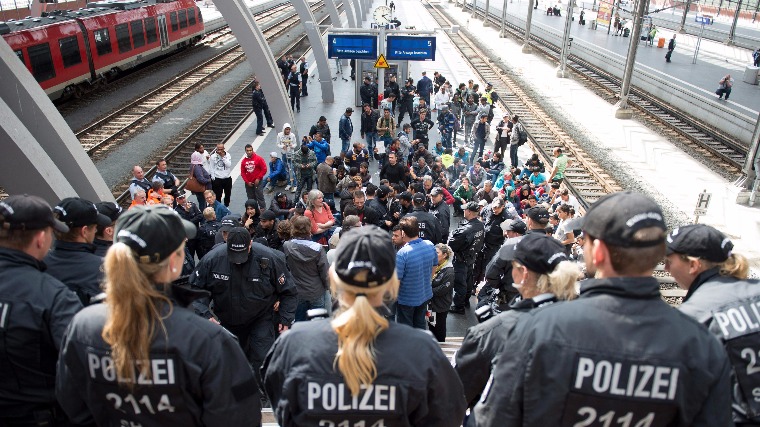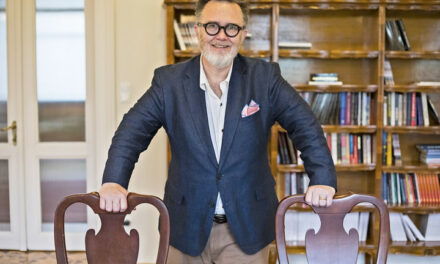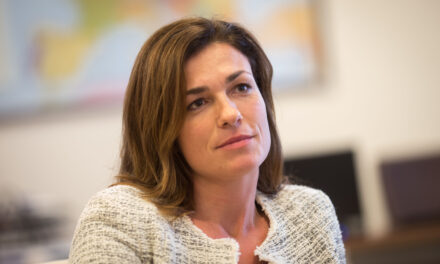From the peninsula of peace to the land of violence - Sweden has become the European champion in fatal shootings, according to statistics. Political correctness has so far denied the facts, and even now only the bravest can find a connection between migration and crime.
The Swedish Crime Prevention Council analyzed twenty years of data from twenty-two countries and came up with the devastating result, which is made even more alarming by the fact that the majority of crimes take place in so-called vulnerable areas. The cautious term covers sixty city districts, mainly inhabited by immigrants and affected by gang wars, where 5.4 percent of the population also lives, but more than half of the shootings can be linked to these areas. Political correctness has so far denied the facts, and even now only the bravest can find a connection between migration and crime. However, it says a lot that the number of police officers will be increased by ten thousand in the next four years. Magnus Norell, Swedish security policy expert and former senior analyst of the Swedish Defense Research Institute, spoke on Kossuth Rádió's Vasárnapi Újság program.
– The National Crime Prevention Council released a report on fatal shootings and the level of gun violence in Europe. This showed that Sweden jumped from the lowest rate to the highest. Looking at this, what could have happened?
– Of course, it is a worrying thing, since the change happened quite quickly. The report makes comparisons with other European countries and points out that many factors exist elsewhere without such an increase in fatal shootings and gun violence. In other words, there must be reasons that make it different in Sweden. I think many people were surprised by the report, but those who follow the events could already see the signs. So the results of the report did not come as a surprise to the police or the intelligence, but rather it was a confirmation for them that what they had been warned about had happened.
- In recent years, we hear from time to time in the news about Sweden, various gang disputes and conflicts. Mainly from big cities. Could this be a reason?
"This is a process that has been going on for a long time." The police chief gave an interview last December in which he mentioned that there are about 40 criminal networks and clans in Sweden, which usually specialize in certain types of crime. He referred to intelligence materials. Violence committed not only by gang wars, but also by organized crime groups has been on the rise for some time. The criminal networks that the police monitor mainly cause problems in and around the big cities, Stockholm, Gothenburg, and Malmö. It has also been a fact for many years that Sweden - as an open liberal country - is very easy to travel to and through. So it's a very good smuggling route, you can easily take things through Sweden. This includes weapons and is also the most common. It's fairly easy to bring in a gun if someone needs it. This has been going on for some time, and to be honest, the police have been trying to warn politicians for years, even if that conversation hasn't necessarily been in public.
– He mentioned that certain factors are present elsewhere, yet such events do not occur as a matter of concern. What are these factors?
– It is a descriptive report that tells you what to experience. And what it highlights is that it is a serious matter. With this, they are trying to draw attention to the fact that what brought Sweden to such a harmful situation should be investigated thoroughly and in depth. There is another report, published about a year and a half ago, that looked at so-called "sensitive areas", as the Americans say no-go zones, which are also mainly located around large cities, where the state is losing ground, for example, to criminal networks before. This should be seen in the context that the police and intelligence, the services, and their institutions deal with these issues and try to put this on the political agenda.
– You mentioned these no-go zones, or sensitive areas. Well, how do the police and law enforcement forces react to the fact that the decision-makers do not act on their signals. We have already seen this year in France that the police protested loudly in order to draw the attention of politicians to a problem, the problem of these no-go zones, sensitive areas.
– I know that the police say the same thing here; that, on the one hand, they lack resources, which of course affects the entire society, which causes problems if only because people do not receive help from the authorities quickly enough. But it's not just about that, there are also organizational problems; within the police, there is a shift towards administrative work, and there is also an ideological shift: instead of looking at what they do, they focus on how they see things. The criticism within the staff is about, and they are talking about - this is my personal experience - that we should return to the original objectives of the police, to put emphasis on crime prevention, and to show ourselves, to be there on the street, that if something happens, the police can be counted on , if you call them you will get help quickly, they are like that. A distinction must be made between everyday crimes such as burglary and shoplifting and organized crime. The latter is much heavier, but you have to fight against them at the same time. And where the two meet, and where organized crime networks are very strong, are the aforementioned sensitive zones where criminals displace traditional law enforcement. And again, because it is very important; these processes have been going on for a long time, otherwise it would have been possible to keep the situation under control. Things would not have progressed to this point if there had been more preventive initiatives when it first appeared, because I repeat, there were also those within the police who drew attention in time, already 20 years ago when it started.
- In Sweden, political correctness is an important principle, and within the framework of this, the background and ethnic background of criminals is not often mentioned. Do you think that this is also one of the reasons, or are there arguments that the high level of immigration is also a reason for the situation?
– It's not necessarily political correctness, but he correctly points out that this is a problem. Perhaps the will to call things by their names is lacking, but it is not certain that it is political correctness here, the problem is bigger than that. What other reports draw attention to - including from the Swedish Crime Prevention Council - is that there is indeed a connection between large-scale immigration and certain crimes. At the same time, there are countries where immigration is also high, but does not result in increasing crime. There is the United States, or indeed Canada, Australia. They are all immigrant countries, so it is not only about this, but also about whether there is a plan for what to do with the fact that many people appear in the country. If there is no such strategy, then the problems begin. And if we think about the already mentioned official reports, it is also clear from them that we received a lot of immigrants from countries where the central power and the state are weak, Middle Eastern and North African countries. Where, even out of necessity, people have to protect their families and those closest to them by themselves, because they know that the government will not do it. And they bring this with them to Sweden, and they also bring their families, which the Swedish state does not try to act against. Of course, this is difficult to do, especially 5-6 years ago, when there was a big refugee crisis in all of Europe. However, there were a lot of people and there is no plan for what to do with them, whether they will get a job, or what to do at all. Sweden, I think, was overwhelmed by so many people and had no idea how to deal with it. We see the consequences of this in part even today.
Source: hirado.hu
Cover photo: A group of migrants heading to Sweden waits at the train station in Lübeck. (MTI/EPA/Daniel Reinhardt)












